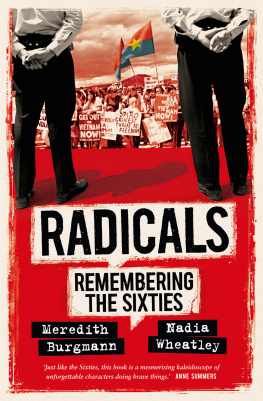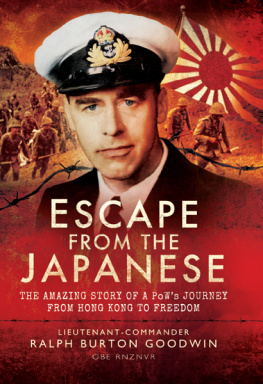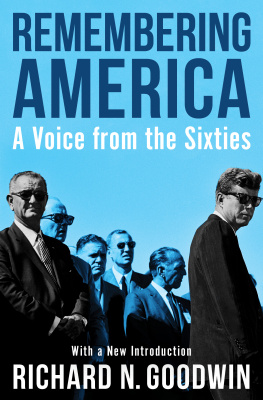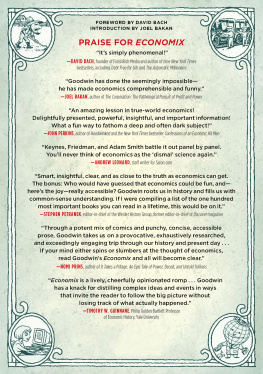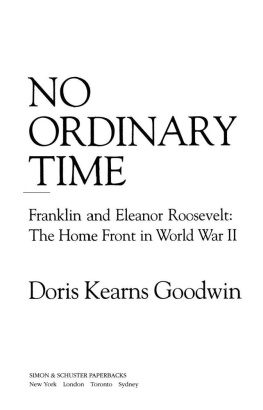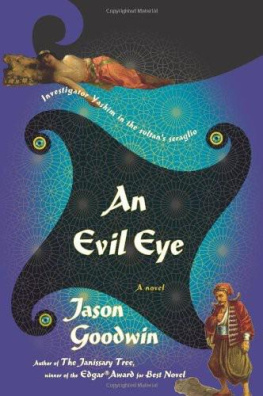Richard N. Goodwin - Remembering America: A Voice from the Sixties
Here you can read online Richard N. Goodwin - Remembering America: A Voice from the Sixties full text of the book (entire story) in english for free. Download pdf and epub, get meaning, cover and reviews about this ebook. year: 2014, publisher: Open Road Media, genre: Non-fiction / History. Description of the work, (preface) as well as reviews are available. Best literature library LitArk.com created for fans of good reading and offers a wide selection of genres:
Romance novel
Science fiction
Adventure
Detective
Science
History
Home and family
Prose
Art
Politics
Computer
Non-fiction
Religion
Business
Children
Humor
Choose a favorite category and find really read worthwhile books. Enjoy immersion in the world of imagination, feel the emotions of the characters or learn something new for yourself, make an fascinating discovery.

- Book:Remembering America: A Voice from the Sixties
- Author:
- Publisher:Open Road Media
- Genre:
- Year:2014
- Rating:3 / 5
- Favourites:Add to favourites
- Your mark:
- 60
- 1
- 2
- 3
- 4
- 5
Remembering America: A Voice from the Sixties: summary, description and annotation
We offer to read an annotation, description, summary or preface (depends on what the author of the book "Remembering America: A Voice from the Sixties" wrote himself). If you haven't found the necessary information about the book — write in the comments, we will try to find it.
Remembering America: A Voice from the Sixties — read online for free the complete book (whole text) full work
Below is the text of the book, divided by pages. System saving the place of the last page read, allows you to conveniently read the book "Remembering America: A Voice from the Sixties" online for free, without having to search again every time where you left off. Put a bookmark, and you can go to the page where you finished reading at any time.
Font size:
Interval:
Bookmark:


FRESH EBOOK DEALS, DELIVERED DAILY
LOVE TO READ ?
LOVE GREAT SALES ?
GET FANTASTIC DEALS ON BESTSELLING EBOOKS DELIVERED TO YOUR INBOX EVERY DAY!


Remembering America
A Voice from the Sixties
Richard Goodwin

To My Wife, Doris
Contents
Introduction
A quarter of a century has passed since I wrote this book. The events described here are now more than half a century old. Yet, the memory of the sixties remains fresh in my mind. This is not simply the nostalgia of a man in his eighties. The decade of the sixties was one of those special moments in our history when important public issues animated our citizens, when large achievement seemed a realistic possibility, and when the American faith was charged with a determination equal to the needs and the promise of the nation.
I was in my twenties when I joined John F. Kennedys 1960 presidential campaign and then entered the White House as assistant special counsel to the president. From my cramped office in the West Wing, I experienced the joy and heartbreak of the thousand days that followed the soaring inaugural speech, the humiliating failure of the Bay of Pigs, the skillful handling of the Cuban Missile Crisis, the struggles in Mississippi and Alabama, the hesitant introduction of the civil rights bill, and of course, the assassination.
The line most remembered from Kennedys inaugural was essentially a summons to our generation: Ask not what your country can do for you ask what you can do for your country. It was what we wanted to hear. It seemed to us a promise that we might have the chance to participate in something beyond our personal concerns, to share in the life of our country.
That promise was first made real with the introduction of the Peace Corps. At 2:00 a.m. on a chilly fall night three weeks before the presidential election, our small campaign entourage arrived at the University of Michigan to discover that thousands of students had remained awake to hear the senator deliver informal remarks. While Kennedy mounted the steps of the union, fellow speechwriter Ted Sorensen and I, famished from a day that had begun over eighteen hours earlier, rushed to the cafeteria, which had thankfully been kept open. Before we reached dessert, a staff member hurried in to inform us that Kennedy had proposed an as-yet nonexistent Peace Corps and that hundreds of students were already signing up! We were too tired to react. Fuller consideration of the program that would become a defining symbol of the Kennedy administration would have to await a few hours sleep.
For many Americans, John F. Kennedy still embodies the spirit of the sixties. Gifted with eloquence, vitality, and grace, he made us believe that we could make our country better, that we could harness our collective energies toward common goals from increasing social justice to landing on the moon. Frozen in memory as a young man, he remains a symbol of hope, action, and possibility.
Little could I have imagined when I was asked to remain on the White House staff with Lyndon B. Johnson after Kennedys death that this new Southern president would do more than any other since Abraham Lincoln to undo the original sin of the American nationracial injustice. In a few short years, with the momentum of the civil rights movement behind him, he brought an end to the legalized apartheid that had scarred Southern society since the Civil War, and with the passage of the Voting Rights Act, millions of African Americans were guaranteed the right to vote that had been systematically denied them for decades. And he pushed for these measures knowing that in doing so, his Democrat party would lose the South for a generation.
I left the LBJ White House in the fall of 1965, when the conflict in Vietnam had been escalated into an American war with American troops. I did not see thencould not have seenthe full disaster the war would become. With each passing day, the laser-like focus the president had once given to his domestic agenda was turned increasingly to Vietnam. My work in the White House was primarily involved with civil rights and the programs that comprised the Great Society. And with the acceleration of the war, domestic progress was essentially frozen.
Leaving LBJ was not easy. From my post at the White House, I had been deeply involved in the central issues of the day. My drafting of the presidents We Shall Overcome speech on voting rights, delivered to a joint session of Congress, will forever remain one of the most fulfilling moments of my public career. Throughout my tenure at the White House, LBJ had always treated me with dignity and respect, and even though he threatened to draft me when I first told him I was leaving, he eventually accepted my decision, writing a moving tribute that hangs on the wall in my study today.
As LBJ continued his relentless escalation of the Vietnam War, I publicly broke with the administration, and in 1968 I left my teaching position at MIT to join Eugene McCarthys crusade to challenge LBJ in the New Hampshire primary. Then in my thirties, I was an old man compared to the thousands of college and high school students who comprised the best field organization I had ever seen. Working with these passionate, dedicated volunteers who willingly cut their hair and beards to be neat and clean for Gene remains one of the most joyful experiences of my public life. They called me the Che Guevara of the teenyboppersa title I accepted with pride. On Election Day, McCarthy came within a few hundred votes of beating the presidentan astonishing victory.
No dramatist could have foretold the cascading events that followed. Days after McCarthys impressive showing on March 12, Robert Bobby F. Kennedy announced on March 16 that he had decided to run for the nomination; three weeks later LBJ shocked the nation with his declaration that he was withdrawing from the race; the following week, Martin Luther King, Jr. was assassinated in Memphis; and two months later Bobby Kennedy was killed in Los Angeles.
Over the years, Bobby had become one of my closest friends. We had traveled together through South America, paddled a canoe on the Amazon, dared each other to swim in piranha-infested waters, and shared a love of poetry and fiction. I was with him in Los Angeles the night he was shot; his death brought an end to my public career. Haunted by the war in Vietnam and the violence that took the lives of three of our most gifted leaders, I retreated to Maine and later to Boston, where I have raised a family and written books, essays, articles, and a play.
Only now, as the passions and divisions spawned by LBJs escalation of the war recede into history, can we begin to appreciate the magnitude of his domestic achievements and the truly visionary nature of the agenda he pursued.
The fiftieth anniversary of the passage of the 1964 Civil Rights Act has rightly brought attention to the extraordinary skill LBJ evidenced in reaching across the aisle to secure Republican support to break the Southern Democratic filibuster. After promising Republican Senate Minority Leader Everett Dirksen everything under the sun for the senators state of Illinois, LBJ closed the deal in brilliant fashion. Everett, you come with me on this bill and two hundred years from now, schoolchildren will know only two names: Abraham Lincoln and Everett Dirksen. How could Dirksen resist? Then, though warned by advisors that the country needed to absorb the desegregation bill before moving on to voting rights, LBJ insisted that the right to vote was the meat in the coconut, and put it at the top of his agenda the following year.
Font size:
Interval:
Bookmark:
Similar books «Remembering America: A Voice from the Sixties»
Look at similar books to Remembering America: A Voice from the Sixties. We have selected literature similar in name and meaning in the hope of providing readers with more options to find new, interesting, not yet read works.
Discussion, reviews of the book Remembering America: A Voice from the Sixties and just readers' own opinions. Leave your comments, write what you think about the work, its meaning or the main characters. Specify what exactly you liked and what you didn't like, and why you think so.

